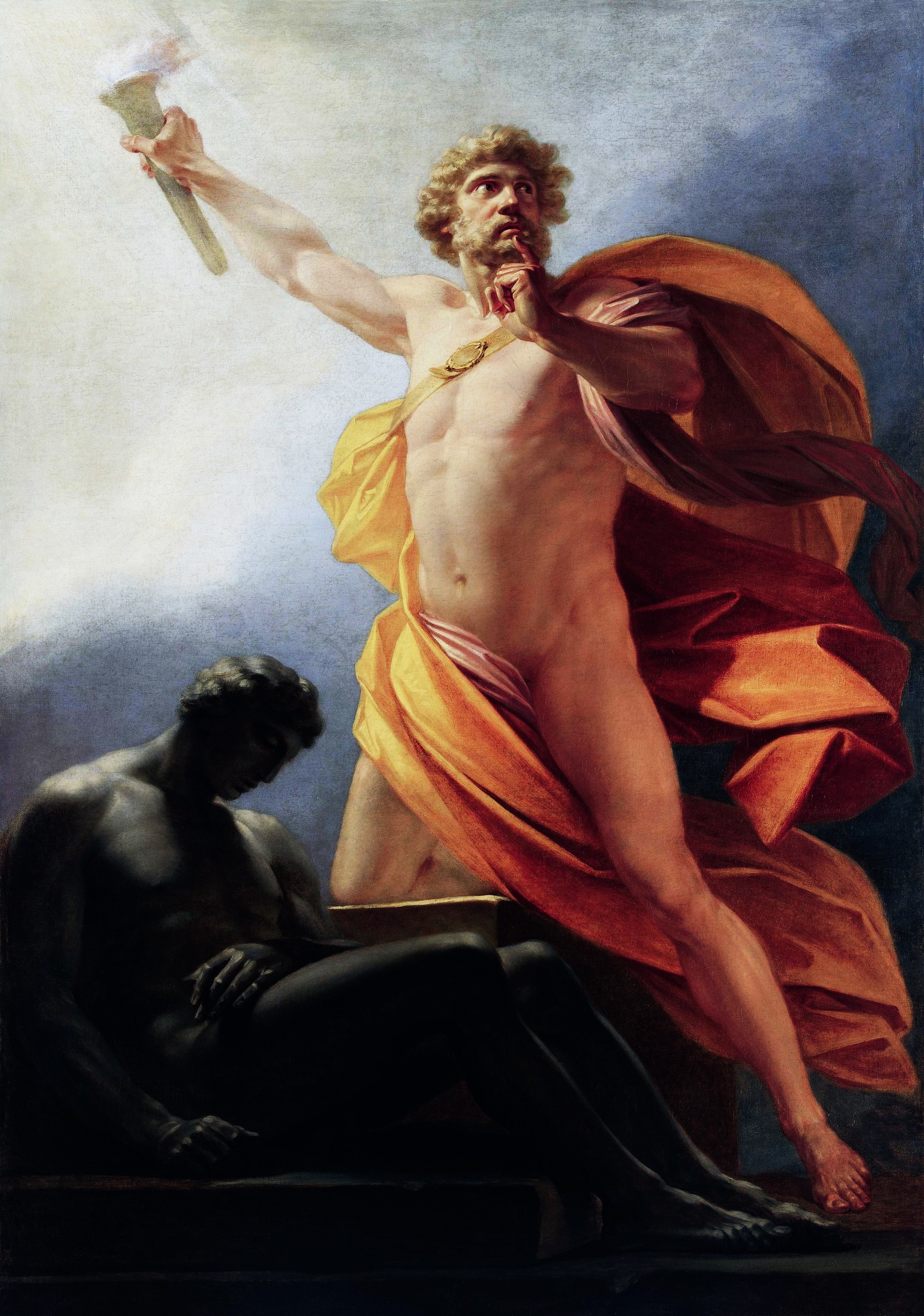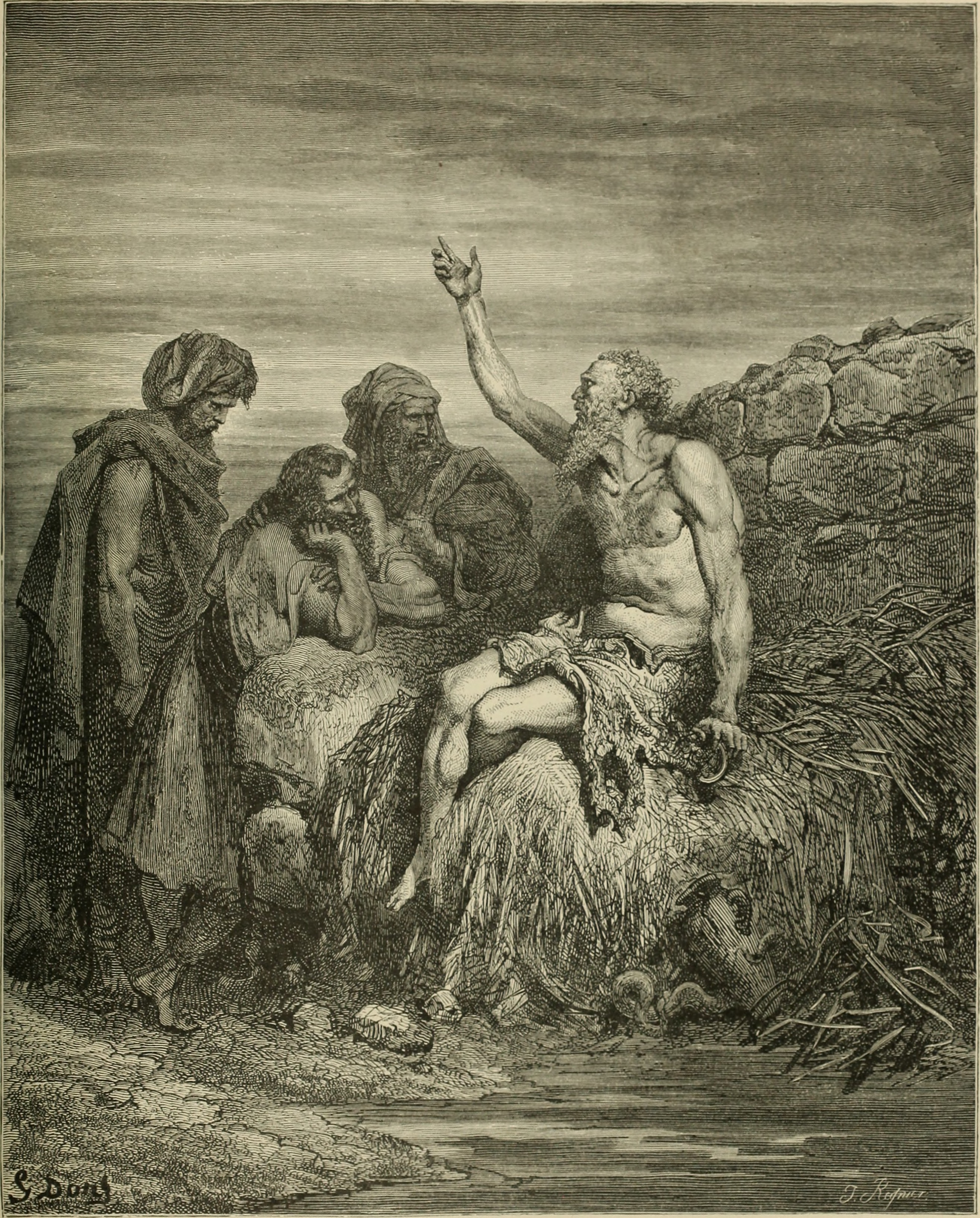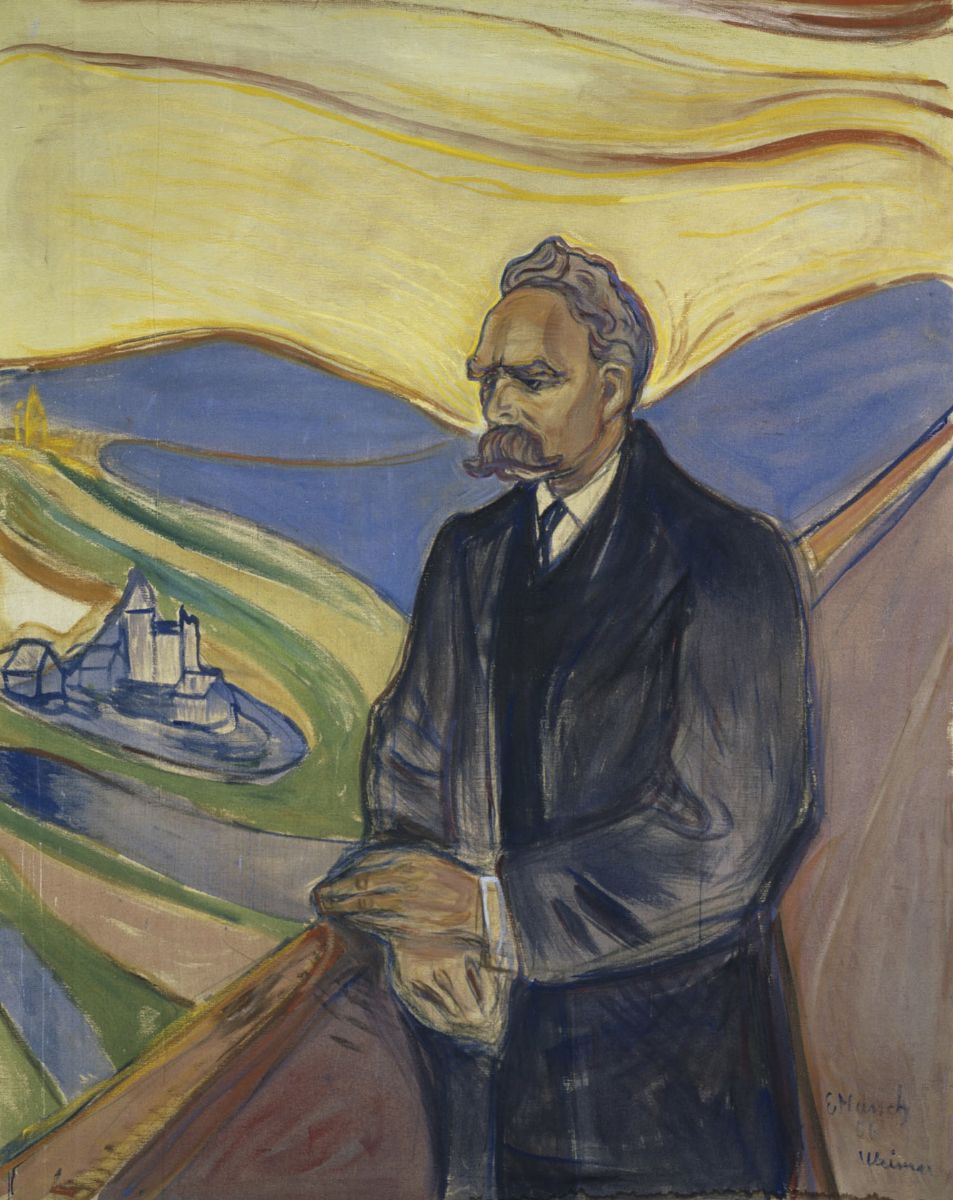I have always been interested in faith. Growing up in a wasteland, with the boundless sea on one end of my vision and high mountains enclosing the other, it would probably be strange if I hadn’t been left feeling like something was out there. But for me, the faith itself has always been more interesting than the container into which that faith was poured. Perhaps that’s because I myself have believed in many things, and from each of them in turn departed, disappointed in either myself or in the ideas themselves.
Dostoevsky was my literary catalyst for thinking about faith. Time and time again, he produced characters who believe in something – whether it’s a kind of superman, like Raskolnikov; or God’s injustice, like Ivan; or that menacing nothingness of Stavrogin. For the Russian mind, faith is almost a fact of life. As Dostoevsky himself wrote, only a Russian can believe in atheism.

This piece was motivated not by Dostoevsky though, but by two poems, which recently made me think about a particular type of faith. Misotheism, or hating God, is not the same as disbelieving in him. It is an entirely different kettle of fish. It is not to consign oneself to an eternity of void and emptiness, but to actually take arms against a hostile God and willingly go to hell sooner than submit to his will and failed world. To me, it is the ultimate act of bravery, of courage – but it is an act that has lost its meaning. So part of this essay will also ask what action, what rebellion, could today hold the same significance as turning one’s back on God. Could anything?
Two poems of Misotheism
Two writers, both Germans, started me off on this train of thought. Goethe’s “Prometheus”, and Friedrich Hölderlin’s “Hyperion’s Song of Fate”, both present a view of the world where there is a turning against God, a rejection of him without a denial of his existence. It was the height of German Romanticism, where rebellion was valued for rebellion’s sake.
Goethe’s Prometheus
Goethe’s work is the one that most embodies Misotheism. In “Prometheus” Zeus, who stands for all gods, is subjected to an attack from Prometheus himself. There is no respect here, none whatsoever. The gods would die, “If children and beggars / Were not trusting fools”. They have never helped the speaker – his only source of strength and achievement has been “My sacred glowing heart”. The poem shows the journey from a positive belief to Misotheism. “While yet a child”, Goethe writes, “I turned my wandering gaze / Up toward the sun” – nature, the source of almost all great belief, is the source of Prometheus’s belief also, but it is a belief that dies. “Who helped me / Against the Titans’ insolence?” – not the gods, but his heart alone.
Prometheus, in rejecting god, finds strength in that rejection, as the last two stanzas show. He does not learn to hate life, “Because not all / My blossoming dreams grew ripe”. Instead, he builds a new race, a people “To suffer, to weep, / To enjoy, to be glad, / And thee to scorn, / As I!”. In opposition to the boring perfection and isolation of the gods, lopping off the heads of thistles up above, Prometheus demands the birth of a people who will experience life, in all of its colours and shades of feeling. Rebelling, we take our attention away from the gods, and bring it down to earth. In so doing, though we will suffer, we will also be able to create a pride in ourselves. Only in independent opposition to god can we truly love ourselves. Such is the idea of Goethe’s Prometheus.

Hölderlin’s Hyperion and his Song of Fate
Friedrich Hölderlin’s poem, “Hyperion’s Song of Fate”, is not in and of itself an example of Misotheism. As with any poem, it is highly interpretable, and as I tried just now to find a translation for the blog the matter gets even harder because none that I have found really seem to get at what I myself see when I read the German. Given that, I’ll have a go at translating the bits I need myself.
Hölderlin’s poem is broken up into three stanzas. The first two address the gods, who “wander above in the light / On soft ground”. Their life is easy, one of art and of breezes. Unlike us they are “Schicksallos” – fateless, or without a destiny controlling them. But Hölderlin, at least to me, does not find in this situation anything to be envious of. The gods are like children – he compares them to the “Säugling”, or “babe”. And I read in his description of their “eternally blooming” spirit and “eternal clarity” of their eyes, with his repetition of the word “ewig” – eternal – a kind of scorn. In another poem, “To the Fates”, Hölderlin asks the Fates not for eternal life, but just for “one more year” to ensure he can achieve all of his creative potential. He does not want to be a boring god, but a successful human being.
Compared to his treatment of the gods in the first two stanzas, this is how he describes our kind:
But for us it is given, On no place to rest - We fade and we fall, We sufferers of fate, Blindly from one Hour to the next, Like water that's thrown From cliff onto cliff, Year by year down into the unknown.
I read rebellion in these lines. Not in Goethe’s sense, not in the sense of an active revolt. But rather in the sense that Hölderlin wishes to show that in spite of our suffering – he doesn’t shy away from showing it – we still have a kind of dignity. “Year by year” we suffer, the playthings of fate, but it is precisely in this suffering that we find our uniqueness and redemption. I admit my idea’s perhaps too much indebted to Dostoevsky, but I do think Hölderlin may have had something similar in mind. We have “no place to rest”, which sets us apart from the gods, eternally resting up above. But their rest is not valuable – in our struggle we are achieving great things, we are actively living. As with “Prometheus”, “Hyperion’s Song of Fate” finds humankind’s glory in terms of our activeness, versus the gods’ passivity.
Job
Both Goethe and Hölderlin turn to a kind of Misotheism in response to the gods’ passivity. Joseph Roth’s Job: The Story of a Simple Man, which I have written about here, takes a different approach. Here, Mendel Singer, the modern Job that is the hero of his story, turns against God because of God’s cruelty. Mendel teaches children his religion, he has served and believed in God all his life, and yet God has made him lose one son to the Russians, killed another son in war, disappeared the third, and left Mendel’s daughter in a mental asylum. Mendel’s faith has not simply not been rewarded – God has actively spat on it. As Mendel yells, “The devil is kinder than God. Because he is not as powerful, he cannot be as cruel”.
Mendel is ultimately unable to burn his bible, but for a moment his Misotheism has reached heights of emotional intensity that not even Goethe and Hölderlin are able to reach. The reason for this is simple – the distance that Mendel has to travel is greater. He goes not only from faith to hostile faith, but from a loving faith to a hostility that has all the signs of despair.

Ivan
Ivan Karamazov, of Dostoevsky’s Brothers Karamazov, is no Job, but his Misotheism is equally powerful. When he declares that he is “returning his ticket to God” his reasons are not personal, but universal. He is concerned with the problem of evil, that thorny thicket that poses a challenge for anyone with religious belief – why does an omnipotent, omniscient God allow evil to exist? In the great chapter, “Rebellion”, Ivan tallies up God’s injustices not against adults, who after all have had time to sin, but against the children. For the suffering of children is the hardest suffering to justify, emotionally speaking, and for Ivan it is too much. He returns his ticket, turning his back on God without denying his existence. But unlike Job, or Goethe or Hölderlin, Ivan’s rebellion is not only Misotheism, but also a kind of Apotheosis – a kind of becoming God.
Because what Ivan wants is a better world. He wants, in a way, to be the God that God isn’t – kind and helpful and good. Because he turns our ideas of Misotheism on their head, he is in some sense unique among the misotheists. And his struggle is, for me, particularly tragic, precisely because it is doomed. One can successfully hate God, one can successfully rebel against him in the name of freedom for oneself, but one cannot rebel against God to make the world a better place. Or at least, one cannot achieve that goal, because we are not gods here on earth. But Ivan’s Christ-like determination to try, to take the sins of the world upon his shoulders and try to solve them, that makes his rebellion, his Misotheism, so glorious, so magnificent, so powerful.
Why is going against God so powerful?
It has been a whistle-stop tour of literature’s Misotheism. What we have seen is that under the unifying banner of rising against God or gods a great many motivations and aspirations can coexist. I find them all compelling, exciting. To go against God is to condemn oneself, it is to love life so much that we turn our back on anything beyond it. That requires great emotional depths – great suffering, great bravery. It requires, in short, determination and passion.
But Misotheism has lost its touch. As a rule, we do not believe in God anymore, which means we cannot go against him. We can still be impressed when someone turns their back on God, but only at a surface level. Deep down, we’re still a little confused as to why they bother believing in the first place. I am not saying that society, in the West or anywhere else, has become atheistic. Instead, we have simply lost God. So when we have such anger, as felt Ivan, as felt Job, we have no outlet for it. There is no target. Our God now is the wind in the reeds, and just as difficult to catch. As a result, we cannot fight.
At its heart, Misotheism is a rebellion against a deeply held belief. This is still possible in our own time. A religious person can still go against God, a communist might turn against their beliefs after reading about their historical applications, while a capitalist might lose faith in their system’s ability to solve all problems. Someone who loves their family might turn against it. But what is true is that we have lost a universal belief, binding us all together. Almost everyone, publicly at least, believed in God in most of the 19th century. Charles Bradlaugh, the first British atheist MP, only joined Parliament at the end of that century. Misotheism was powerful in literature because it was a universal theme – now that is not the case. So perhaps the question is, what has replaced it?
Nietzsche – a modern alternative to Misotheism?
Friedrich Nietzsche is the person I naturally turn to when I think about religious faith in the modern era. In The Joyous Science section 125 he writes about the madman in the marketplace, who declares that “God is dead”. This declaration wasn’t designed to shock Nietzsche’s readers, just as it doesn’t shock those in the marketplace. Almost everybody in the 19th century, just as they publicly acknowledged God, privately also didn’t much care for his existence. But they went no further. Without God’s existence, Nietzsche points out, we must live differently. We must interrogate every one of our underlying conceptions and ideas to determine which have a solid basis, and which are only the legacy of a religious system we now ought to throw away. That was Nietzsche’s project, and it was a failure. Most still live by those past values as before.

In Thus Spoke Zarathustra Nietzsche makes what I consider his hope for what a modern version of Misotheism would look like. It would be, essentially, a reversal of the traditional one. Zarathustra, the prophet of the book, declares in section 3 of his Prologue that “To blaspheme the earth is now the most dreadful offence, and to esteem the bowels of the Inscrutable more highly than the meaning of the earth”. With Goethe we saw the most powerful and touching rebellion as moving from a focus on the divine to a focus on the earthly. In its place Nietzsche sees the most spirited (but here wrong) rebellion as one that rejects the earth instead. If Nietzsche’s project had been successful, he would be right. We would all be stunned and impressed by those who reject the earth for God, even as we mostly disagree with them.
It is not so.
Religious Terrorism as a Nietzschean Misotheism in practice
We do not believe in anything. What Nietzsche feared most of all, the descent into nihilism he saw as inevitable so long as we continued along Christian lines of thought, has come to pass in the West. We have lost our spiritual centre but have put nothing in its place. Of course, there are exceptions. Many of us now have a weak spiritualism and think of a kind of God up there, even if we cannot quite make him out. But this faith is personal, and rebellion against it is an act of mind, and not of body, as it is with Ivan, with Job, with Hyperion and Prometheus. It is less tragic to witness, and more simply sad. Few of us love the earth, because we do not have a connection to it. We are trapped in cities, desperate to survive, preyed on by systems far more powerful than ourselves.
But to rebel against these systems is nothing special either. Because nobody really supports them. Terrorism is perhaps the closest thing to a reverse-Misotheism in Nietzsche mould, but I have not one positive word for it (obviously). There are no positive angles to terrorism for anyone except the perpetrators: none of the hope and kindness of Ivan, none of the love of freedom and emotion of Goethe’s Prometheus. The power of Misotheism lay in the fact that when we rejected God we rejected him for something that in our hearts seemed even greater. With terror we reject the world for something lesser.
Conclusion
I wish I knew what the answer was to these problems of faith. I wish I knew a way to bring a kind of faith back. Not one that takes us from the world, but one that binds us to it, and to each other, more closely. At times I have felt like literature, truly great literature, can achieve this. I think of Levin in the fields, or Ivan again – these people made me want to live. They affirmed life, when nowadays most of us only live it. But literature only offers a kind of personal salvation. The only way to make people live, that I have found, is to get out and live yourself, and lead by example. Only then do we recapture some of the heroism, some of the bravery, that makes Misotheism in these great works of literature so powerful.
Thanks for reading. For more Dostoevsky, here’s Crime and Punishment; my review of Roth’s Job is here; as for thinking about the state of the modern world, Joker, Capitalist Realism, and Sally Rooney’s Conversations with Friends all have things to say.
If you enjoyed the piece and have thoughts of your own, please leave a comment. I’d love to hear what others have to say about the ideas I have discussed here.





![Picture of Cretan Beach
Marc Ryckaert (MJJR) [CC BY 3.0 (https://creativecommons.org/licenses/by/3.0)]](https://i2.wp.com/mostlyaboutstories.com/wp-content/uploads/2019/03/Crete-beach.jpg?fit=656%2C391&ssl=1)
![Villanueva [CC BY-SA 3.0 (https://creativecommons.org/licenses/by-sa/3.0)]](https://upload.wikimedia.org/wikipedia/commons/4/49/Cimbalom_small_001.jpg)